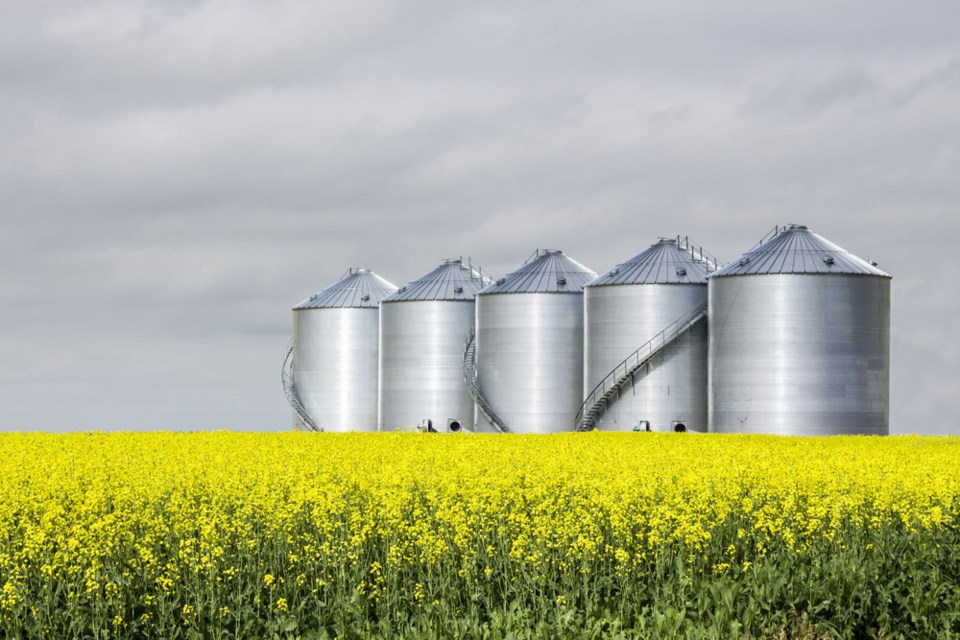The world record canola yield, grown in the United Kingdom, was developed applying two-thirds the amount of nitrogen fertilizer expected by agronomists.
A Saskatchewan crop input retailer says that U.K. farmer increased the yield through better plant health and photosynthesis in his canola field.
Saskatchewan farmers can get “some pretty amazing yields” by a focus on soil health and plant health, Brad Hanmer, CEO of SynergyAG, told an RBC farm meeting in Moose Jaw.
Plants are low in natural photosynthesis efficiency, ranging from three per cent to 15 per cent efficiency.
A one per cent increase in soil and plant health will produce great results, he said.
Nitrogen fertilizer provides the energy consumed by billions of microbial soil bacteria that represents yield increases but “we are killing the bacteria” with chemical fertilizer and farm practices.
Although nitrogen fertilizer provides the energy for plant growth, high salt content — up to 25 per cent — in the fertilizer kills microbes that transfer energy to the plant and reduce intake of the 17 minerals critical to plant development.
Every farm’s soil health is unique and requires localized agronomic knowledge to develop best soil and plant health.
Products from the four major chemical companies don’t offer that kind of localized assessment, he said.
Biological product applications are the solution but Hanmer cautioned against buying some products on the market.
When a salesperson wants a farmer to try a new product, Hanmer says the farmer needs to be skeptical and ask: What is It? What will it do? and where is the independent third-party research supporting it?
“Beware of the BS out there!”
The CEO is keen on a new biological fertilizer called Crystal Green, made from human excrement, with high phosphate content and a low salt content. About 70 per cent of Saskatchewan soil is phosphate deficient.
Hanmer said his comments are all based on the availability of water.
“Without rain we have nothing.”
Headquartered in Govan (population 216), north of Regina, SynergyAG has stores in Govan, Kronau, Lumsden, Balcarres, Yorkton, Pense and Provost, Alberta.
The company plan is based on “filling the vacuum of areas underserved by independent ag retailers.” Independent retailer numbers have declined with buyouts of dealers over several decades.
With major chemical companies down to four from 17, he said they have huge budgets for research and new products.
Some “cool stuff” down the road includes gene editing that can tell a plant to sink roots deeper for water and nanotechnology.
Ron Walter can be reached at [email protected]


.png;w=120;h=80;mode=crop)

